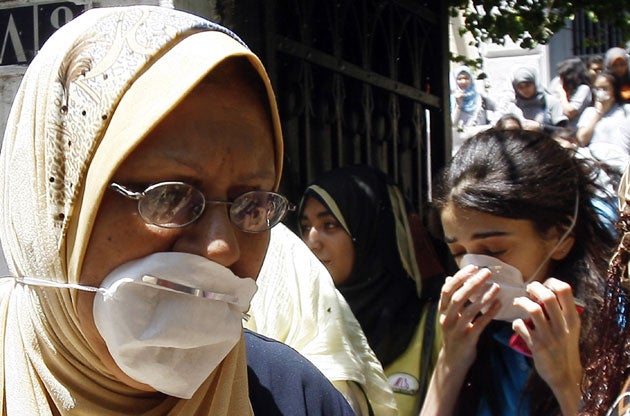Swine flu could grow far deadlier, says WHO adviser
The virus shows worrying similarities to Spanish flu, which wiped out 50 million people in 1918

Your support helps us to tell the story
From reproductive rights to climate change to Big Tech, The Independent is on the ground when the story is developing. Whether it's investigating the financials of Elon Musk's pro-Trump PAC or producing our latest documentary, 'The A Word', which shines a light on the American women fighting for reproductive rights, we know how important it is to parse out the facts from the messaging.
At such a critical moment in US history, we need reporters on the ground. Your donation allows us to keep sending journalists to speak to both sides of the story.
The Independent is trusted by Americans across the entire political spectrum. And unlike many other quality news outlets, we choose not to lock Americans out of our reporting and analysis with paywalls. We believe quality journalism should be available to everyone, paid for by those who can afford it.
Your support makes all the difference.One of the world's leading virologists warned last night that the swine flu virus shares worrying similarities with Spanish flu – which wiped out 50 million people in 1918 – and that we should be prepared for the worst.
As the pandemic continues to escalate, Professor Albert Osterhaus, an adviser to the World Health Organisation (WHO), expressed his fears that swine flu may develop into a far deadlier strain. "In a doomsday scenario, we could have a severe pandemic, similar to the Spanish flu, and that could arise out of a mutation of the virus," he said.
"Spanish flu also started as a relatively mild strain, comparable to the seasonal flu virus. Then, after half a year, there was a major peak and tens of millions of people died worldwide." Both viruses seem to target largely healthy adults and children, he added.
The global pandemic gives swine flu an opportunity to mutate into another form, said Professor Osterhaus, head of virology at the Erasmus University Medical Centre in Rotterdam and the man who discovered the H5N1 avian flu virus in humans.
"We cannot predict what's going to happen, or how likely or unlikely it is that we will have this scenario, but I think the precautionary principle is important and we should be prepared for the worst, even if there's only a small chance of it happening. We cannot rule out a repeat of a pandemic on the scale of the Spanish flu."
The warning comes just days after the WHO announced the outbreak had reached phase six – making it the first global flu pandemic in more than 40 years. Swine flu has now spread to 74 countries, with around 30,000 confirmed cases. It has killed 145 people so far. Dr Margaret Chan, director-general of the WHO, warned the world to "brace" itself for more deaths.
The number of confirmed cases in Britain has more than doubled over the past week – to the current total of 1,121 – as the rate of infection accelerates: 150 new cases were confirmed yesterday – the largest daily increase to date. A statement from the Health Protection Agency (HPA) indicated that "around the world we are seeing an increase in cases and the same can be said for the UK. We may well be going to see further rises." The HPA is stepping up attempts to track the spread of the virus by collecting data from thousands of doctors' surgeries.
The Secretary of State for Health, Andy Burnham, has tried to downplay fears over swine flu. Speaking in the Commons on Friday, he said: "This does not fundamentally alter our approach, so people should not be alarmed." The Government has only enough stocks of the anti-viral drug Tamiflu to cover half the population, and has ordered an extra 50 million doses. Health officials have also ordered 226 million face-masks and 15.2 million courses of antibiotics.
Drugs companies are already racing to come up with a vaccine. GlaxoSmithKline claims it will be ready within weeks to begin large-scale vaccine production. Sanofi-Aventis has already started working on its own version. And, on Friday, Novartis announced it had created an experimental vaccine made via a cell-based technology that may prove faster than the traditional way of making vaccines, which relies on chicken eggs.
Join our commenting forum
Join thought-provoking conversations, follow other Independent readers and see their replies
Comments